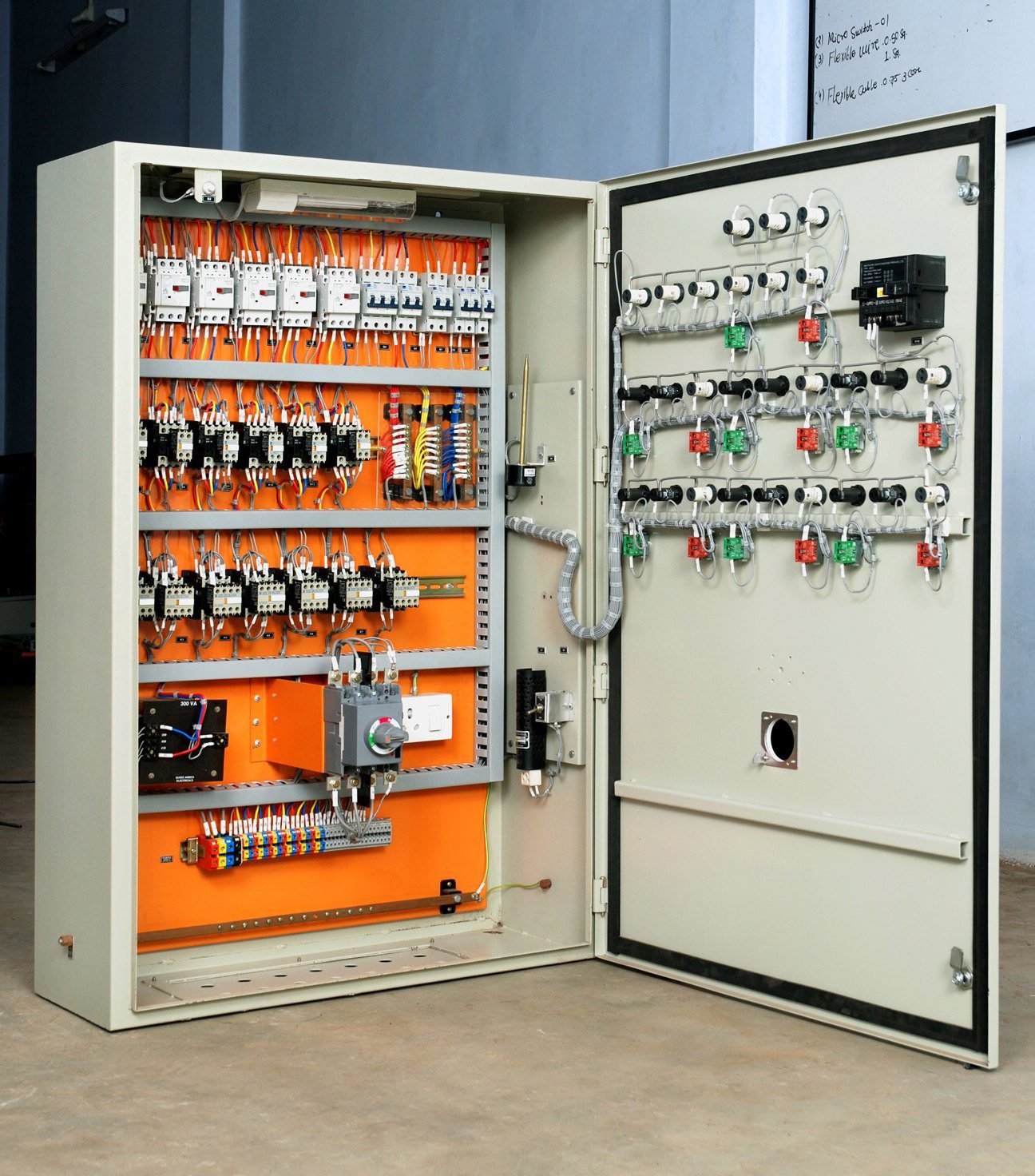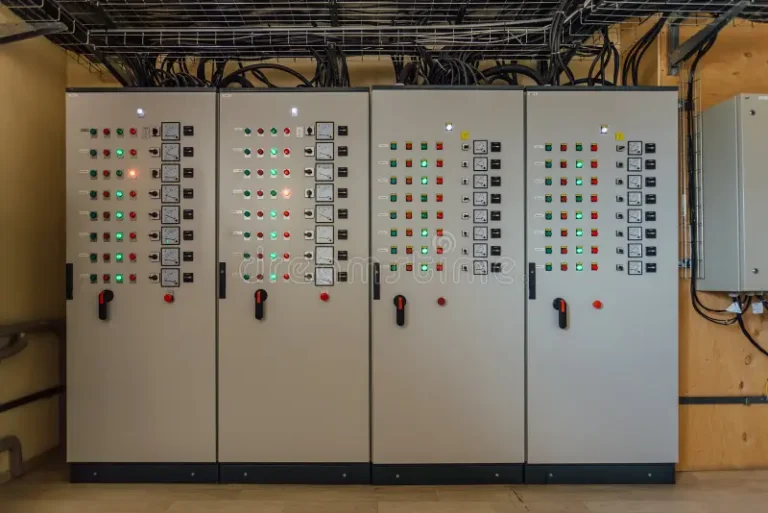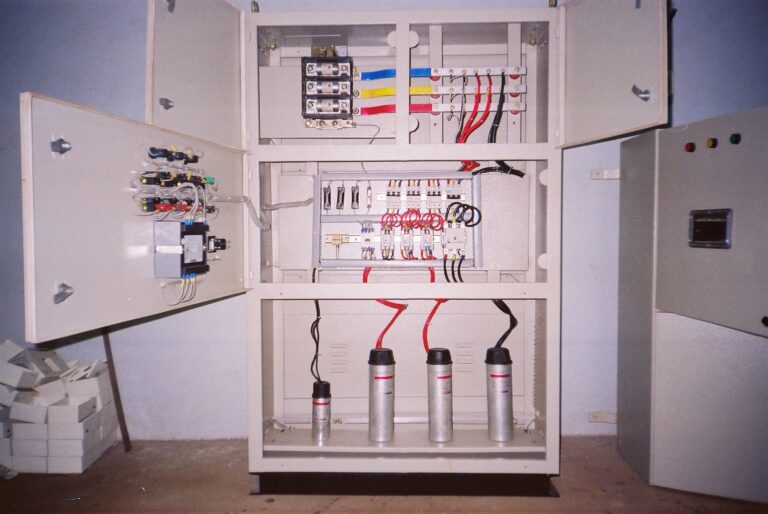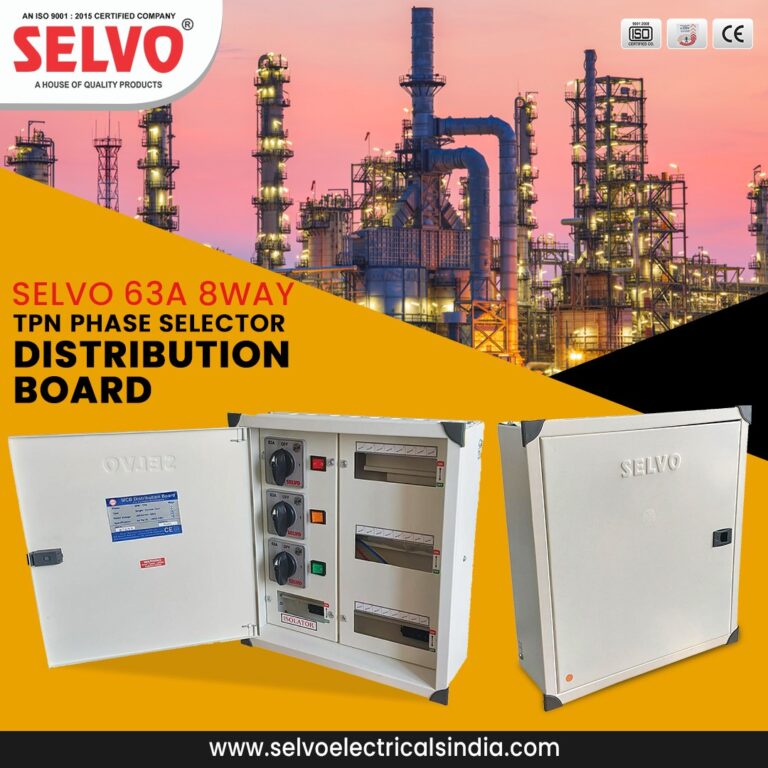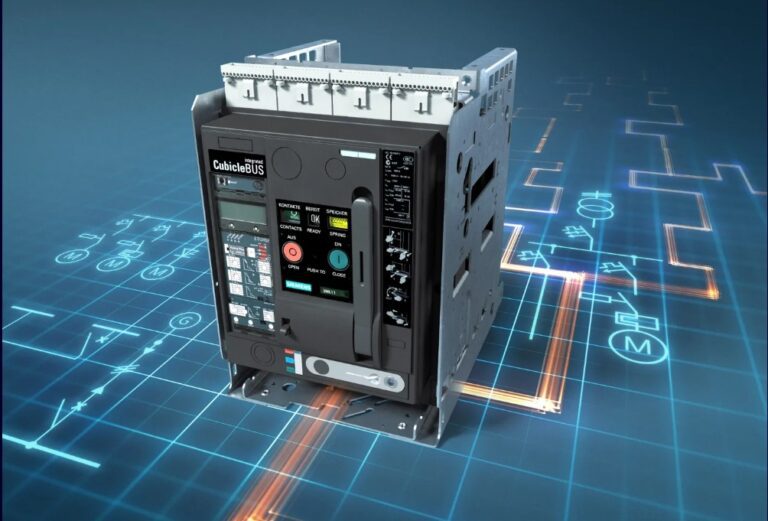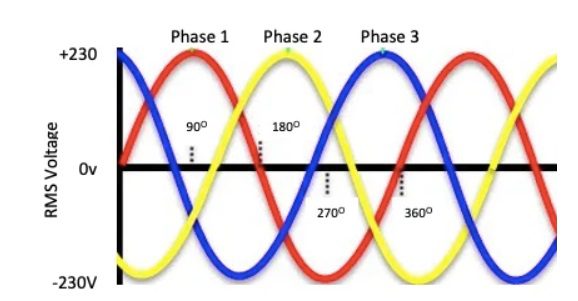What Are Electrical Panels?
Electrical panels, also known as distribution boards or circuit breaker panels, are centralized units that house various electrical components to manage and distribute electrical power to different parts of an industrial facility. These panels serve as control centers, enabling operators to manage electricity distribution across machines, equipment, and lighting systems. By controlling and monitoring power flow, electrical panels help prevent overloading, electrical faults, and provide a way to isolate problematic circuits in case of malfunctions.
Core Components of Electrical Panels
Electrical panels are made up of various components, each serving a critical function:
Circuit Breakers: These are the safety devices that automatically interrupt the electrical flow in the event of an overload or short circuit. Circuit breakers prevent electrical fires and equipment damage by disconnecting the flow of electricity when necessary.
Busbars: These metal bars act as a conduit for electricity and help distribute power to the individual circuits within the panel.
Fuses: In addition to circuit breakers, fuses also protect electrical systems from excessive current. Unlike circuit breakers, fuses melt when the current exceeds the preset limit.
Switches: These allow manual control over the flow of electricity, enabling operators to turn equipment on or off safely.
Meters and Indicators: These monitor power usage, voltage, and current, providing real-time data to operators for efficient management of energy consumption.
Relays: Relays are electrically operated switches that allow electrical signals to control other components, ensuring optimal functioning of circuits and machinery.
Each of these components plays a vital role in ensuring that the electrical system functions as intended and remains protected from faults or hazards.
The Role of Electrical Panels in Industry
Power Distribution: The primary role of an electrical panel is to distribute electrical power efficiently across an industrial site. By managing how electricity is channeled to various sections of the facility, electrical panels ensure that operations run smoothly and that the correct amount of power reaches each device or machine.
Load Management: Electrical panels also play a key role in load management, balancing the electrical load across multiple circuits. This ensures that no circuit is overloaded, which could lead to power outages or even fires. Proper load balancing also extends the lifespan of electrical equipment by ensuring that no components are exposed to excessive strain.
Safety: Safety is a major concern in industrial environments, and electrical panels are at the forefront of protecting personnel and equipment from electrical hazards. By incorporating circuit breakers, fuses, and other protective devices, electrical panels prevent dangerous situations like electrical shorts, fires, and equipment malfunctions. These safety measures are essential for preventing downtime and maintaining compliance with industry standards.
Control and Automation: In modern industries, automation is a driving force. Electrical panels are integral to automation systems, controlling and monitoring machinery with precision. By acting as hubs for programmable logic controllers (PLCs) and other control systems, electrical panels enable seamless automation and real-time data collection, reducing the need for manual intervention and increasing operational efficiency.
Maintenance and Longevity
While electrical panels are designed to be durable, regular maintenance is key to ensuring they continue to perform reliably. Over time, dust, dirt, and moisture can accumulate inside the panel, leading to poor electrical connections and potential malfunctions. Regular inspection and cleaning are necessary to ensure that components like circuit breakers and relays function optimally. Additionally, electrical panels should be checked for signs of wear or damage to prevent costly downtime and ensure that the panel complies with safety regulations.
Conclusion
Electrical panels are undeniably the backbone of industrial electrical systems, acting as the central hub for power distribution, safety, and control. Without them, industrial operations would face disruptions, increased risks of hazards, and inefficient use of resources. By understanding the vital role electrical panels play in industrial settings, businesses can better appreciate their importance and ensure their electrical systems are managed effectively. Regular maintenance, proper installation, and timely upgrades are crucial to keeping these systems in top condition, ensuring the ongoing success and safety of industrial operations.

